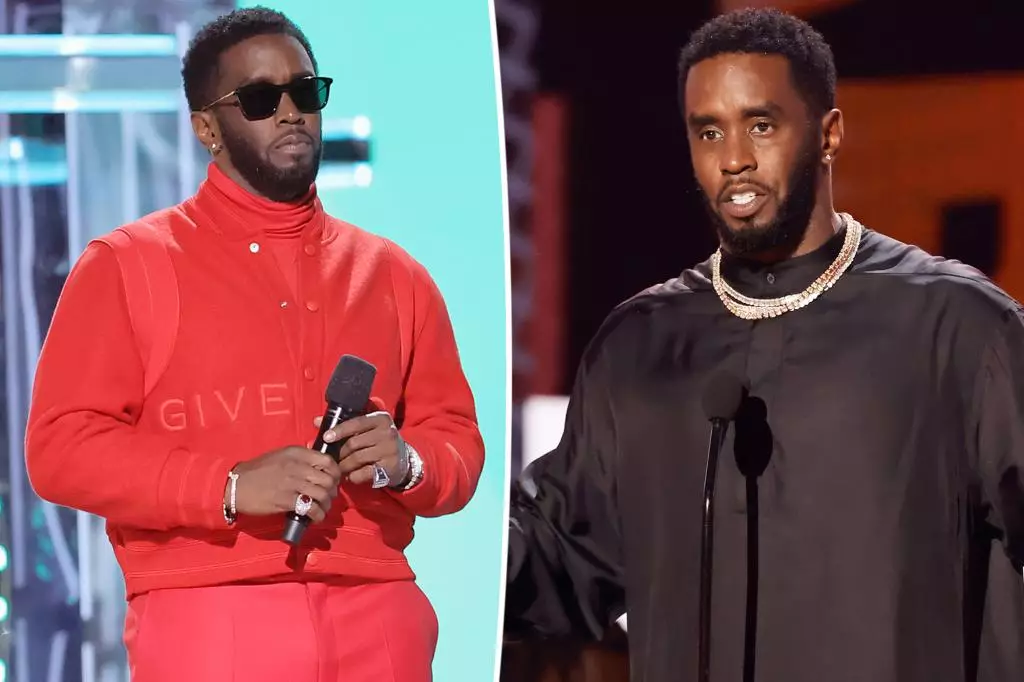In the high-stakes world of celebrity, few narratives grasp public attention like those involving legal battles. Sean “Diddy” Combs, a prominent figure in music and entertainment, is currently embroiled in a complex legal entanglement focusing on serious charges of sex trafficking and racketeering. As the case unfolds, the choice of whether or not to testify becomes a pivotal decision for the hip-hop mogul, one that legal experts suggest holds significant implications for his defense strategy.
According to Meesha Moulton, a legal expert from Meesha Moulton Law, Diddy’s decision to testify may not be in his best interest. The inherent risks of testifying in one’s own defense are manifold. In a courtroom, the defendant is subject to rigorous cross-examination, during which the prosecution aims to exploit any inconsistencies or weaknesses in their testimony. Moulton emphasizes that this process can be “mentally grueling,” making it exceedingly challenging for an individual, regardless of their public persona.
Diddy’s potential testimony could serve as a double-edged sword; while it might allow him to express his narrative and challenge the prosecution’s account, it equally opens the door for damaging cross-examination. In a high-profile case like this, such exposure can transform the perceptions of jurors if the defendant shows any signs of frustration or inconsistency. Maintaining composure amidst intense scrutiny is critical, and Moulton argues that it poses one of the “biggest challenges” for the 54-year-old music executive.
Diddy’s legal team, spearheaded by attorney Marc Agnifilo, seems eager to present his side of the story, portraying it as a “human story” filled with love, heartache, and personal struggles. Agnifilo’s intent to transform Diddy’s narrative from a string of serious allegations into a more relatable human experience is an intriguing approach. This strategy aims to humanize Diddy and potentially divert the jury’s focus from the prosecution’s damning claims.
Moulton, however, cautions against viewing the storytelling aspect in isolation. She argues that while sharing a personal narrative may humanize Diddy, it must align with a robust legal strategy. Moulton strongly advocates for prioritizing a calculated defense rather than giving in to the desire for self-expression. She firmly believes that Diddy must weigh the benefits and risks of taking the stand with circumspection.
The landscape of Diddy’s legal challenges is complex. The federal indictment details extensive allegations, including abusive conduct, threats, and coercion used to fulfill his alleged sexual desires. These grave accusations suggest a long-standing pattern of misconduct that extends beyond mere hedonism, implicating Diddy in orchestrated criminal activity. The prosecution’s narrative paints a grim picture of morally reprehensible behavior, further complicating the defense’s position.
What makes this case particularly sensationalized is the dramatic imagery associated with the alleged “Freak Off” parties—where it is claimed that illicit activities took place under controlled conditions, involving disturbing elements such as lubricant and other substances that hint at a calculated effort to create an environment for exploitation. Such vivid details not only capture the public’s imagination but can also fundamentally sway the jury’s perceptions.
Diddy’s upcoming trial carries the weight of significant consequences. If convicted, he faces a minimum of 15 years in prison, a daunting prospect for someone accustomed to a life of luxury and fame. The path to trial is still unclear, pending a status hearing that will further delineate the timelines of this complex legal journey.
Ultimately, as Diddy stands at this crucial juncture, the decision on whether to testify may well define the framework of his defense. Balancing the benefits of personal narrative against the risks of rigorous legal questioning will require careful, strategic deliberation. As the case progresses, all eyes will be on this prominent figure, who must navigate the perilous waters of the legal system while attempting to maintain his public persona amid a whirlwind of allegations. In the realm of celebrity justice, the stakes could not be higher. Each decision made in the courtroom could contribute to a legacy forever tarnished—or a compelling comeback from the brink of downfall.

